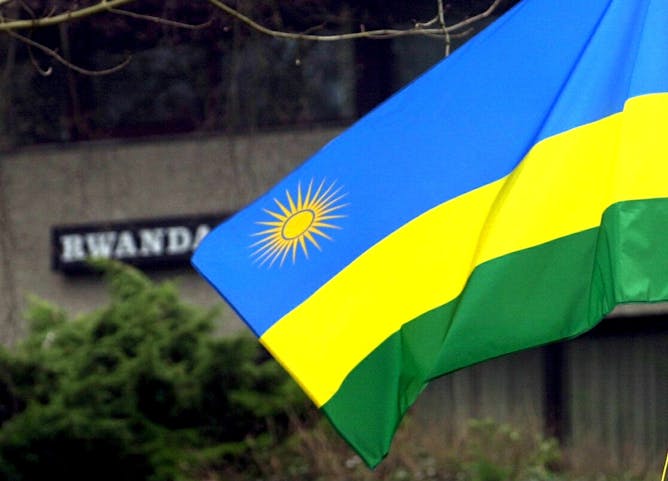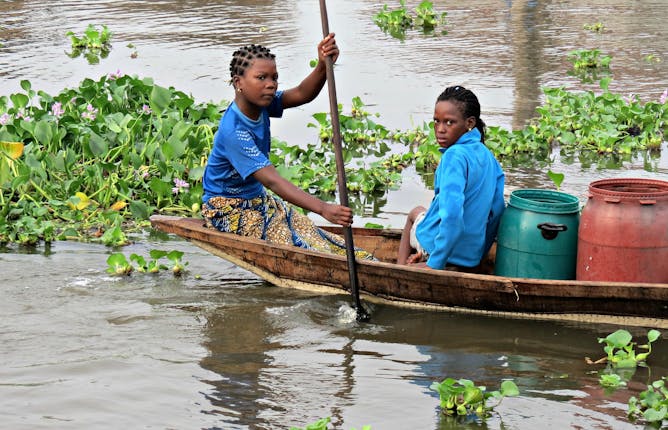|
On the face of it, Rwanda’s recent history has been shaped by colonisation, a mid-20th century revolution, independence and a genocide. But, argues Filip Reyntjens, it’s important to look back even further to get to a true understanding of the country, particularly the use of power and the role of the state.
Global efforts have been mounted to fight modern slavery. But one particular system still holds strong in West Africa. Wisdom Mensah explains why this form of slavery - which involves girls being sent to live in religious shrines - persists, and what can be done about it.
|

Except during the relatively brief period of colonial rule, Rwanda was, and is, a violent society.
EPA/Olivier Matthys
Filip Reyntjens, University of Antwerp
Throughout the entire period, central political power has been almost absolute.
|

In certain communities in Benin, Togo and Ghana, young virgin girls are sent to atone for their family’s wrongdoing.
Linda De Volder/Flickr
Wisdom Mensah, University of West Florida
Trokosi is an ancient practice in West Africa where virgin girls, some as young as six are sent as slaves to make amends for wrongs committed by their families.
|
Business + Economy
|
-
Alan Hirsch, University of Cape Town
South Africa's president has firmly thrown his weight behind the private sector. This could prove significant.
|
|
Health + Medicine
|
-
Glenda Mary Davison, Cape Peninsula University of Technology
The increased demand for home-based diagnostic tests calls for stricter regulation.
|
|
From our international editions
|
-
Helder Ferreira do Vale, Hankuk University of Foreign Studies
Jair Bolsonaro, a right-wing congressman and former army captain, is Brazil's next president, with 56 percent of votes. Critics see a threat to democracy in his scathing attacks on Brazilian society.
-
Ayona Datta, King's College London; Nabeela Ahmed, King's College London; Rakhi Tripathi, FORE School of Management
In a country where 26% of the population has access to mobile internet, India's working class women are finding other ways to fight the patriarchy.
-
Neil Stephens, Brunel University London
As the number of companies growing meat in vats explodes, the sector is facing challenges that show it is coming of age.
-
Ingrid Anderson, Boston University
After the killing of 11 people at a synagogue in Pittsburgh, a scholar explains why this hate crime reminds her of the political climate between the two world wars in the US.
|
|